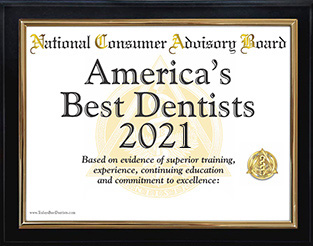
3 Warning Signs of Cavities to Watch Out For
Dental health is an essential aspect of overall well-being, yet cavities continue to be one of the most common oral health issues affecting people of all ages. Cavities, also known as dental caries, develop when bacteria in the mouth produce acids that gradually erode tooth enamel. Early detection plays a critical role in preventing minor decay from progressing into more severe dental problems like infections or tooth loss. Unfortunately, many people overlook the subtle signs of cavities until they experience significant discomfort. Understanding and recognizing the early warning signs can make all the difference in protecting your smile. In this blog, we’ll explore the three most common warning signs of cavities and why prompt action is necessary.
Tooth Sensitivity: A Telltale Warning from Your Teeth
One of the first and most common signs that a cavity may be forming is tooth sensitivity. This symptom usually manifests as a sharp, sudden pain or discomfort when consuming hot, cold, or sweet foods and beverages. The reason behind this sensitivity lies in the erosion of enamel, the protective outer layer of the tooth. When the enamel weakens due to acid attacks, the underlying dentin layer becomes exposed. Dentin contains microscopic tubules that directly connect to the nerve endings inside the tooth, making it highly responsive to temperature changes and sugary substances.
People often dismiss early sensitivity as a temporary reaction or assume it will resolve on its own. However, ignoring this symptom allows the decay to progress further. As the cavity deepens, sensitivity can increase, eventually turning into persistent pain that affects daily activities like eating and drinking. Seeking professional dental care at the first sign of unusual sensitivity enables early intervention, potentially preventing the need for more invasive treatments like fillings or root canals. Using sensitivity toothpaste can help manage discomfort temporarily, but it’s no substitute for a thorough dental examination to identify and address the underlying cause.
Visible Discoloration and Spots on Teeth: Visual Clues Not to Ignore
While cavities often start unnoticed, they can sometimes provide visual indicators before causing discomfort. One such early warning sign is the appearance of discoloration or spots on the surface of the teeth. These areas might appear as white spots initially, indicating demineralization of enamel, which is the earliest stage of decay. Over time, if decay progresses unchecked, these spots can darken, turning brown or even black, signaling more extensive damage to the tooth structure.
Not all spots or discoloration are caused by cavities. Stains from coffee, tea, tobacco, or certain foods can also alter tooth color. However, when a discolored spot doesn’t fade with regular brushing and seems to grow in size or darken further, it may indicate decay beneath the enamel. It’s essential to recognize that by the time discoloration becomes pronounced, the cavity might already be in a more advanced stage.
Routine dental check-ups play a vital role in monitoring such changes. Dentists can distinguish between harmless stains and signs of active decay, often using diagnostic tools like dental explorers or x-rays. If caught early, remineralization treatments using fluoride gels or varnishes might help restore enamel strength and halt cavity progression. Failing to address these visual signs promptly could lead to the need for restorative treatments like fillings, crowns, or even extractions.
Persistent Toothache: A Red Flag for Advanced Decay
When cavities advance beyond the enamel and reach the dentin or pulp of the tooth, persistent toothaches often develop. Unlike occasional sensitivity, a toothache associated with cavities tends to be continuous, throbbing, or sharp. This pain may worsen when biting down or when the affected tooth comes into contact with hot, cold, or sweet stimuli. Sometimes, the pain might radiate to the jaw, ear, or even the head, making it hard to pinpoint its exact origin without a professional evaluation.
The root cause of a cavity-induced toothache lies in the infection or inflammation of the pulp, which houses the tooth’s nerve and blood supply. As bacteria penetrate deeper layers of the tooth, they irritate or infect the pulp tissue, triggering intense pain and sometimes swelling. At this stage, cavities are no longer a minor inconvenience—they have become a significant dental issue requiring immediate attention.
Ignoring a persistent toothache increases the risk of developing serious complications like dental abscesses, which are pockets of pus caused by bacterial infections. An abscess can lead to swelling, fever, and even systemic infections if left untreated. Therefore, seeking dental treatment as soon as persistent pain arises is critical to safeguarding both oral and overall health. Depending on the severity, treatment may involve fillings, root canal therapy, or extraction if the tooth cannot be saved.
Why Early Detection Matters in Cavity Prevention
Recognizing and acting upon the early warning signs of cavities cannot be overstated. While modern dentistry offers advanced solutions for treating severe decay, prevention and early intervention remain the most effective strategies for maintaining dental health. Left unchecked, what starts as minor sensitivity or a small spot can evolve into widespread decay, infection, and eventually tooth loss. Moreover, treating cavities in their early stages is typically less invasive, less costly, and more comfortable than addressing advanced decay.
Maintaining a proactive approach to oral health involves more than just brushing and flossing regularly. It requires paying close attention to subtle changes in your mouth and understanding that discomfort, discoloration, and pain are not to be ignored. Scheduling routine dental visits twice a year provides professional oversight that can catch early signs of decay long before they become problematic. Preventive measures like fluoride treatments, dental sealants, and professional cleanings further bolster your defense against cavities.
Education also plays a crucial role in prevention. Learning about how diet, oral hygiene habits, and genetic predispositions influence your cavity risk empowers you to make better choices. For example, limiting sugary snacks and beverages, using fluoride-based toothpaste, and incorporating antibacterial mouthwashes can significantly reduce the likelihood of developing cavities.
Steps to Take if You Suspect a Cavity
If you notice any of the three warning signs discussed—sensitivity, discoloration, or persistent toothache—it’s important not to delay seeking dental care. The first step should always be scheduling an appointment with your dentist for a thorough evaluation. During this visit, your dentist will examine the affected tooth visually and may use diagnostic tools such as x-rays to assess the extent of decay hidden beneath the enamel.
Depending on the severity of the cavity, your dentist will recommend appropriate treatment options. Early-stage cavities might be treated with fluoride applications aimed at remineralizing the enamel, while moderate cavities typically require fillings to restore tooth integrity. If decay has reached the pulp, more advanced interventions like root canal therapy become necessary to save the tooth and prevent infection.
Meanwhile, adopting diligent oral hygiene practices can help minimize further damage. Brush your teeth at least twice daily using fluoride toothpaste, floss to remove plaque from between teeth, and rinse with a fluoride mouthwash. Reducing your intake of sugary foods and beverages also limits the fuel available for harmful bacteria. Drinking plenty of water throughout the day helps wash away food particles and acids, contributing to a healthier oral environment.
Conclusion
Ultimately, cavities are a progressive condition that worsens without intervention. Understanding and responding to the early warning signs of sensitivity, discoloration, and persistent toothache can make the difference between minor dental work and extensive restorative procedures. Being proactive about your dental health not only preserves your smile but also supports your overall quality of life.
Need a Dentist Office Near You?
At The Smile Spa of North Jersey, LLC, we’re here to provide the personalized, high-quality dental care you deserve in a space where your comfort always comes first. Whether you’re due for a routine checkup or need more specialized treatment, our friendly and experienced team is ready to support your wellness journey every step of the way. Reach out to us today—we’d love to welcome you in, answer your questions, and help you rediscover your best smile.
Categorised in: Dental Health

